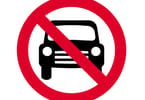First a plea. I still see open restaurants and young people on the beach in groups here in Florida. This nonsense needs to stop. There is only one chance of defeating the virus attack fast – social distance.
It is your decision if you want to take the risk of getting sick. However, in a civilized society, it should not be your decision that you risk infecting others!
Many of us are nervous, not only because of the virus but also because of the financial consequences. The news and YouTube are full of “experts” babbling about “how bad this can get” or “it is all over in some weeks.” The best idea is probably not to listen too much to that, because no one really knows what the future holds.
If people behave disciplined and follow some simple rules, this can be over quickly. If not, this will take longer. Life experience, unfortunately, tells me that there are many ignorant people out there.
How is the world prepared for the attack?
I cannot write about the medical side as I have no clue. All I see is medical staff in the affected areas under attack rising to heroic heights. They get my deepest respect. In the words of Winston Churchill, “never have so many had so few to thank for so much.”
The partial shutdown of the economies has huge financial effects. We, the travel industry, are hit the worst, but the whole economy is under pressure.
In such a situation, the state and the central banks step in. The central banks supply liquidity and lower the interest rates; while the states create demand by giving loan guarantees, subsidies, unemployment help, etc. The details depend on the economic model of the given country.
But the major economies are unprepared for this big time.
Why? Too much debt and too low-interest rates. Debt has already financed party for a decade!
Europe in 2001 had politicians with little clue about economics who decided to make a common European currency. This was one of the most stupid decisions in newer history, but as the German Chancellor H. Kohl put it, “the Euro is a question of peace or war. It will unite Europe.” Nonsense – it has created so much pain and social unrest. The idea of the Euro is a bit the same as if you, your rich uncle, the drug addict from the park, and the shoplifter which you saw getting caught yesterday all share one and the same bank account. Economic sense tells you that is not really a brilliant idea.
The European politicians had made economic rules defining who could join the Euro. Everybody knew that not all economic statistics could stand a closer look, but the champagne was poured, the band was playing, and the politicians celebrated themselves in the European capitals. Most of Europe joined the Euro, and now many countries had access to cheap debt.
Incompetent and lazy politicians in Southern Europe started to borrow heavily instead of modernizing the totally inefficient administration – easier to distribute sweets (if you cannot afford to buy them – just send the invoice to the next guy in charge, was the thinking) than to implement painful but necessary reforms. On the other side, Northern Europe, because of the fixed currency rates, massacred parts of the industries in the South. German politicians said, “Germany profits from the Euro.” You cannot profit if your neighbors are suffering and if the pension savings of German savers are robbed by the negative interest rates. Fools! The Euro was a very bad idea for all.
When the debt crisis hit in 2008 (see below), most of Southern Europe was caught between a rock and a hard place and had to be bailed out by the IMF and the ECB. The people went through hard times paying for the incompetent behavior of previous politicians. Some say the bailout was mainly for the North European banks which had lent the money. It doesn’t matter – the result is the same.
In America, ruthless bankers had talked people into taking loans based on crap houses. The bankers pooled the loans, sliced them in pieces, and sold them to other bankers. Financial engineering, they called it. Lehmann went broke, and the house of cards fell apart. The world stood on the brink of a financial meltdown. Same medicine as mentioned above. Correct?
The idea is that in tough times, the governments stimulate the demand, and the central banks ease the so-called monetary policy, BUT in good times, these measures are rolled back. The budgets are brought in order, and the interest rates are increased. That was forgotten – the contrary happened. Easier to send the invoice for the sweets to the next guy!
In Europe, the politicians and central bankers wanted to save the Euro “at all costs” as the previous ECB governor said. The consequence was that the markets were flooded with money. Today, we have negative interest rates in most parts of Europe. Sick! Economic studies have shown that it normally takes interest rate cuts of about 3% to get an economy out of a recession. How do we do that when the interest rates are much lower?
On the other side of the big ocean, the debt grew fast, too. From 2008 to 2018, the public debt grew by 100%. The Obama administration reacted to the banking crisis correctly but forgot the next step – the subsequent debt reduction.
Then a new person was eating cheeseburgers in the Oval Office. The taxes for corporate America and the wealthy people were reduced, the military spending went North, and the Governors of the Fed were “twitter beaten” to lower the interests. President Reagan some 30 years earlier successfully kick-started the economy out of a recession with big tax cuts, but that was in a recession, not in an economy running at full load. Not only the public debt grew, but so did student loans and credit card debts, and the corporate debt grew almost 100% from 2008 to 2019. If the loans were used for productive investments, nothing to object to.
However, a bulk of the corporate loans were used for stock buy-backs – the main reason for the bull market. About the military spending, of course, the USA must be able to defend itself and its allies. But the debt-financed military expansion weakened the ability to defend the economy. Isn’t it enough to be able to kill the bad guys 20 times. Does it have to be 30 times?
Ray Dalio, the founder and CEO of the biggest investment fund – and ex definition a super capitalist – wrote some months ago “the capitalist system is broken.” The policies on both sides of the Atlantic made the rich richer through an enormous asset price inflation, which now has blown away. Sick economies in Europe were kept in a currency system which is no good for neither the once-healthy economies nor for the sick ones. About 15% of Americans have no health care insurance, and many live from paycheck to paycheck. Bad news in a COVID-19 situation.
What is our responsibility going forward?
The current corona crisis will not make things better. The economies will need a bail out, further debt, and printing of money. That is necessary, but let us pray that the central bankers and politicians will have the wisdom and guts to reduce the debt and the money printing once this crisis is over.
The French diplomat Joseph de Maistre (1752-1821) wrote “Toute nation a le gouvernement qu’elle mérite“ – every country has the government it deserves. We, the voters, are at the end of the day responsible for who we put into office, and we need to do some serious thinking who we give responsibility to going forward. When this crisis is over – and it will be over – we have to clean up the mess in public finances and monetary policy made during the last decade.
Jan Larsen is CEO of WorldTravelNation, the operator for the new buzz.travel social media network.
WHAT TO TAKE AWAY FROM THIS ARTICLE:
- The idea of the Euro is a bit the same as if you, your rich uncle, the drug addict from the park, and the shoplifter which you saw getting caught yesterday all share one and the same bank account.
- When the debt crisis hit in 2008 (see below), most of Southern Europe was caught between a rock and a hard place and had to be bailed out by the IMF and the ECB.
- Incompetent and lazy politicians in Southern Europe started to borrow heavily instead of modernizing the totally inefficient administration – easier to distribute sweets (if you cannot afford to buy them – just send the invoice to the next guy in charge, was the thinking) than to implement painful but necessary reforms.























